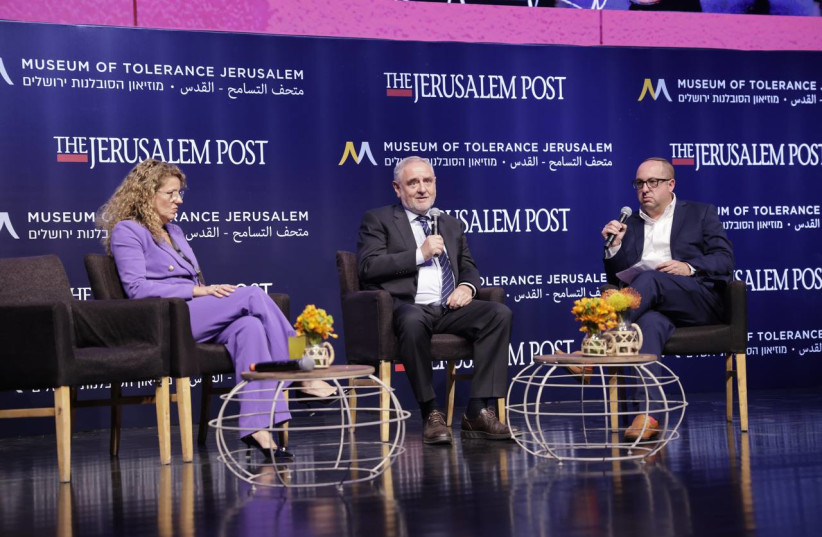In the spirit of Hebrew Book Week, SASA Setton, which provides educational solutions for 140,000 hospitalized children annually in 41 general, psychiatric, rehabilitative, and nursing hospitals throughout Israel, will present the “SASA Setton Prize for Children’s Literature” for the third consecutive year.
The prize was established for leading Israeli authors and illustrators, to promote creativity in illustrated children’s literature, thereby providing significant recognition to the field.
More than 100 authors and illustrators who have published children’s books in the last year have submitted nominations for the award. The first prize of NIS 70,000 will be divided equally between the author and illustrator of the winning book. In addition, a Lifetime Achievement Award of NIS 25,000 will be awarded to a children’s author who has significantly impacted Israeli culture. Past prize winners include author Galila Ron-Feder Amit and Leah Naor.
How is SASA Setton helping in the field of Hebrew children's literature?
SASA Setton has chosen to engage in children’s literature and provide an educational and enriching solution to hospitalized children in a wide variety of areas. The SASA Setton Prize for Children’s Literature is named after Philippe (z” l) and Hilda Setton, honorary presidents and founders of SASA Setton. The organization has been promoting education for hospitalized children in 41 schools across the country for the past 13 years. Mrs. Hilda Setton chose to perpetuate her husband’s memory by presenting this distinguished award in his name.
“Just last year, we parted from two great children’s writers who were trailblazers in Israeli culture – Meir Shalev and Yehonatan Geffen, and it is important to preserve their work, ensure that their books continue to be read and maintain their legacy,” said Sonia Gómes de Mesquita, a representative of the donor’s family and deputy chair of SASA Setton’s board of directors.

“We are delighted that through this prize, we have the opportunity to influence and encourage creative culture,” she said.
All the books that have competed for the prize will be distributed after the competition to schools in hospitals throughout the country for hospitalized children, and authors and illustrators will hold personal meetings in the hospital schools.
In addition to the prize, SASA Setton has built a national community to increase knowledge in the field of children’s literature, led by SASA Director-General Etty Avni and Prof. Shai Rudin. The “Studying Children’s Literature” community holds monthly meetings with leading authors, editors, and illustrators that are offered free of charge to the general public.
SASA SETTON is currently organizing a festive event concluding this year’s activities. The organization is also developing original and hybrid content for tens of thousands of children hospitalized across the country. It recently launched the “Activity Shelf” in honor of Hebrew Book Week – a portal that children can enter from their hospital bed (or from home); enjoy a variety of unique activities based on the books that have received the SASA Setton Prize for Children’s Literature, as well as other important books, hear from the authors about their creative process, and listen to books read by the authors themselves.
“Through this innovative activity, we make a personal and special encounter with writers and illustrators accessible to each hospitalized child, as well as combining teaching children’s literature with language teaching so that hospitalized children will not accumulate learning gaps that will make it difficult for them to return to regular classrooms,” said Gómes de Mesquita.
“Studies show that reading children’s literature is very important for children’s development and educational advancement. It is essential to provide educational enrichment content for the children, and to introduce them to a childlike, creative and special world,” she said. “It is a great privilege to put the field of children’s literature in the center and promote these significant values. We believe that through the book, children work through educational processes that strengthen their emotional resilience.”
In Israel, children’s literature is a subject that has been overshadowed. Very little academic knowledge has been accumulated on the subject, and authors of children’s books are considered to be of lesser stature than authors of books for adults. An interesting statistic reveals that very few original works for teens and young adults in Hebrew have been published in the past two decades.
SASA Setton is encouraging creativity in this field through its prize for children’s literature, by rewarding and recognizing the authors and illustrators. This is because youngsters’ encounter with children’s literature is their first meeting with art. By producing the evenings of learning, faculty and educational staff, as well as parents and creators deepen their knowledge in the field and become acquainted with the teaching methods whose goal is for children to enjoy children’s literature and read more books.
